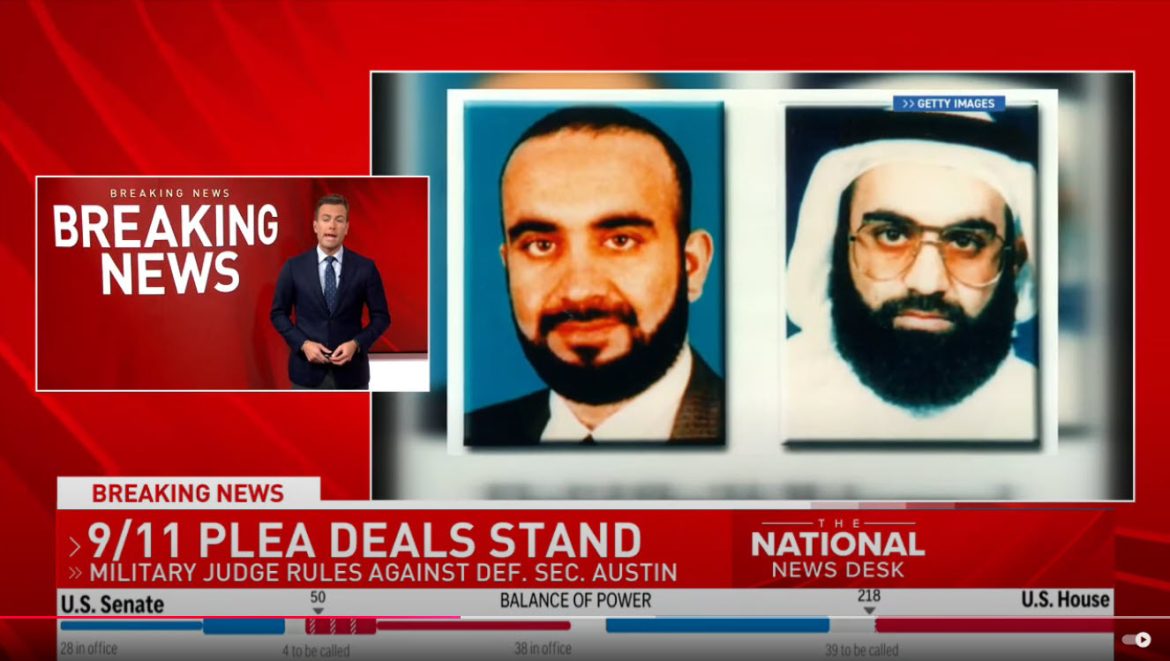In a landmark ruling, a military judge has validated plea agreements between the U.S. government and three alleged September 11th conspirators held at Guantanamo Bay, including the alleged mastermind Khalid Sheikh Mohammed. The decision confirms that the defendants may avoid the death penalty in exchange for guilty pleas, potentially concluding years of protracted legal proceedings and sparking intense public and political debate.
This ruling comes after years of stalled proceedings and repeated setbacks in the high-profile case. In July, the U.S. government reached plea deals with Mohammed and two other key defendants, offering life sentences rather than capital punishment if they accepted responsibility for their roles in the 9/11 attacks, which killed nearly 3,000 people. However, just two days after the agreements were announced, Secretary of Defense Lloyd Austin unexpectedly rescinded the deals, citing concerns over the terms. Austin’s move brought further uncertainty to an already complex case that has faced legal and procedural delays since it began in 2003.
The judge’s ruling effectively overrides Austin’s revocation, finding that the timing of his intervention was “fatal” since Guantanamo’s top official had already approved the plea deals. The judge’s decision revalidates the agreements and allows the proceedings to move forward toward sentencing.
With this ruling, Khalid Sheikh Mohammed and his co-defendants are expected to receive life sentences rather than facing death row. The Pentagon has responded cautiously, with spokesman Major General Pat Ryder stating that the Department of Defense is currently reviewing the decision. Legal analysts indicate that Ryder’s statement suggests the Pentagon may yet consider other legal responses, though further appeals could face steep obstacles.
The validity of the plea deals has stirred intense public reaction. For many, the plea agreements represent a compromise that provides a semblance of justice after years of delay, potentially sparing victims’ families further drawn-out litigation. The decision also signals a potential closure for a case that has become emblematic of the protracted and controversial legal process at Guantanamo Bay, where defendants have remained in a legal limbo due to procedural complications, shifting legal standards, and debates over detainee rights.
Critics of the plea deals argue that sparing the defendants the death penalty is an injustice to the victims of the 9/11 attacks and their families, who have waited over two decades for a resolution. Proponents, however, contend that the plea agreements may be the most pragmatic way to achieve accountability, especially given the challenges of trying high-profile cases under military commissions.
The decision also highlights ongoing questions about Guantanamo Bay’s future as a detention and trial facility. The facility, established in the wake of the 9/11 attacks, has faced criticism over detainee treatment, lengthy pretrial detention periods, and the complexities of trying foreign nationals accused of terrorism. President Biden’s administration has indicated a desire to close Guantanamo Bay, and this ruling could accelerate discussions on how to resolve remaining cases.
As the cases proceed toward sentencing, the U.S. government faces a delicate balance between securing justice for the 9/11 attacks and addressing criticisms of the military commission system. For now, the plea deals stand as the latest chapter in the long, tumultuous legal journey surrounding one of the most consequential attacks in modern history.



